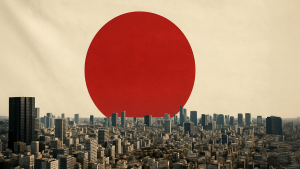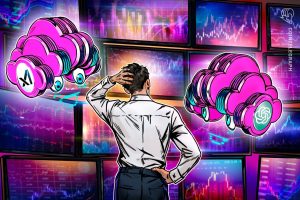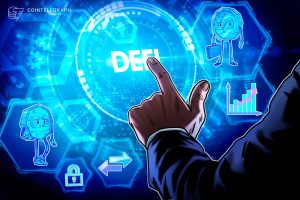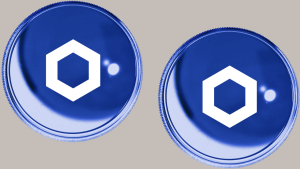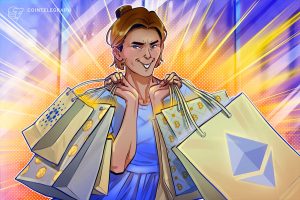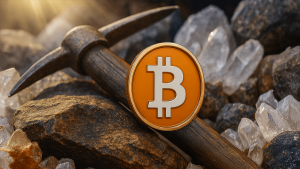The future of art? World-famous artists delve into NFTs
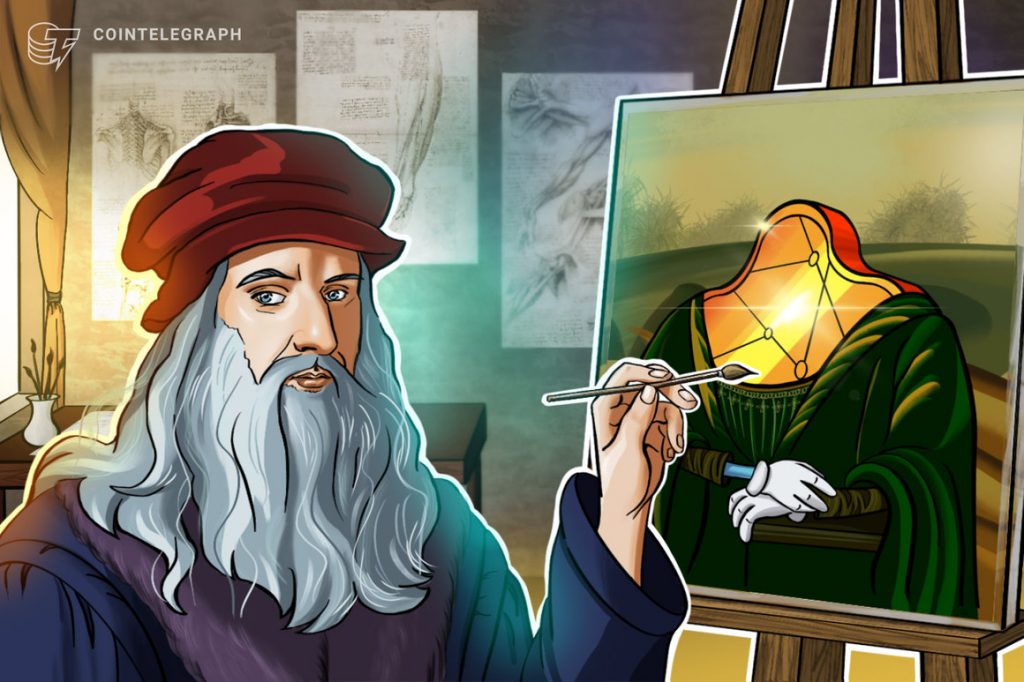
For millennia, the world of art has remained unchanged for the most part. The tradition has always revolved around artists selling their work to museums, galleries, or individual collectors. In return, the artist would get a market value for their work which was often kept in private vaults and only displayed to the public ever so often.
With the advent of NFTs, many artists are now able to take their work and offer it up for sale as a digital collectible. Through these blockchain-enabled digital assets, the artist cannot only maintain ownership of a piece of the art they produce but also gain royalties from sales made in secondary markets.
Undoubtedly, NFTs are changing the contemporary art scene as artists no longer have to rely on galleries and museums as their sole medium through which they can sell their work. This shift in perspective has allowed for greater freedom and choice in the artists’ work while also bringing in new audiences and a new stream of traditional artists to NFTs.
Here is a look at the most famous contemporary artists that have gotten into NFTs lately.
Damien Hirst
Hirst recently launched “The Currency” project that consists of 10,000 NFTs corresponding to physical prints of his five-year-old artwork now stored in vaults. The NFTs will cost buyers $2,000 per piece and will be available for purchase by the end of the month.
NFTs are changing the world and the art world is increasingly looking toward crypto, however, for Damien Hirst, it’s not all about a get-rich-quick scheme that is portrayed all over the media. The English artist and entrepreneur was once one of the youngest contemporary artists to dominate the U.K. art scene in the 1990s and is the region’s richest living artist, according to reports.
The Currency project is set to blur the lines between fungibility and nonfungibility (especially money and art), as collectors of Hirst’s NFTs will have the choice of either getting the physical painting or the NFT version of the painting. The NFT will be a high-resolution photo of the physical painting.
In an interview with Cointelegraph, Hirst said that he used to give a lot of art away and he would get frustrated whenever people would sell the art.
“I suppose this whole project is like a test. It’s like when you walk downstairs in your house if you got a painting and it’s not long before the spot represents a dollar sign.”
Related: British artist Damien Hirst uses NFTs to blur the boundaries between art and money
Other highlights of Hirst’s work include a 2008 sale of the “Always Beautiful Inside My Head Forever” project that sold for over $220 million in a direct sale at an auction, as well as the “For the love of God” project that entailed a diamond-encrusted skull which sold for $100 million.
In an interview with Cointelegraph, Hirst said that he was annoyed by applications such as iTunes that take ownership away from musicians and applauded NFTs for their contribution in helping artists maintain ownership of their creations.
Related: British art icon Damien Hirst to accept BTC, ETH payments for print run
Philip Colbert
With a strong background in contemporary art as well as graphic design, Colin Philip Colbert was already a recognized rising star of the pop art world before he joined the NFT space. The British contemporary artist has even gone as far as receiving the praise of legendary designer André Leon Talley. Colbert got his start as an undergrad at the University of St Andrews in Scotland before moving to London’s then-emerging East End arts scene where he conceptualized the project that would become Lobsteropolis.
Based on Colbert’s initial Lobster University project, Lobsteropolis is a digital city built on Decentraland’s blockchain-based virtual world, featuring composite elements of Colbert’s work from several international art exhibitions, shows and museums.
The ambitious project offers a rare glimpse into an emerging industry that features an intersection between blockchain technology and the art world. It also features an open virtual world environment that allows people to interact with one another and the art.
Already, Colbert’s work has attracted the praise of famous personalities in the world of art, including Simon de Pury, a world-renown art auctioneer and curator, and Charles Saatchi, a contemporary art collector and a businessman.
Colbert said that the digital space enables him to explore the narrative of his art in a new way.
One of Lobsteropolis’ most outstanding features is a hybrid artwork and musical performance feature titled Lob-Ster De-Vo which is a rock band-themed multimedia experience. The city is not just an art exhibition but an interactive virtual world as well. Lobsteropolis pushes the boundaries of both virtual and augmented reality in a gameplay experience that allows users to interact with their peers and create several layers of fantasy.
Related: Bringing contemporary pop art to an NFT metaverse
Huang Heshan
“Bu Tu Garden” is Huang Heshan’s latest NFT-based real estate art that will be showcased at the Taobao Maker Festival. The young Chinese artist who initially assumed that everything blockchain-related would be “very complicated and troublesome to operate” admits to his surprise that working with nonfungible tokens is way easier.
Huang will be launching his virtual “Bu Tu Garden” project at Taobao Maker Festival, which is an annual event that celebrates Chinese art and entrepreneurship. Taobao, an Alibaba-owned platform, will be showcasing NFTs for the first time since the beginning of the festival in 2016.
Huang’s debut NFT art project is built on the NEAR blockchain protocol and is made of a virtual real-estate landscape that comprises more than 1,000 virtual structures, 300 high-end family villas and another 1,000 parasols.
With a background in fine arts, Huang’s Bu Tu Garden takes after the local tastes of Chinese streets in a wild design filled with vibrantly colored trees, inspired by the story of a fictional real-estate tycoon who is dedicated to building up-market housing for the less fortunate.
Grimes
Another artist who is making a debut into the NFT landscape is Grimes. Popularly known for her exploration of synth-pop music and experimental art, Grimes recently sold her digital artworks for a staggering $6 million in an auction on Nifty Gateway. The artwork includes a series of one-of-a-kind visual and audio artworks. One particular piece called “Death of the Old” sold for over $350,000. A bulk of the sales amounting to more than $6 million originated from individual pieces of art that comprised thousands of copies, selling for $7,500 each.
Related: Musician Grimes’ debut NFT auction generates $5.8M in 20 minutes
The Canadian singer and visual artist already managed to be a critically-acclaimed pop star long before entering the NFT space. Her electronic pop music as well as her relationship with Elon Musk (tech CEO and entrepreneur) has brought her a large following of over 1.9 million people on Instagram. Through her NFT artwork, she showcases her versatile talent in writing, producing and editing her music.
Steve Aoki and Antonio Tudisco
Antoni Tudisco is a creative director and 3D visual artist who was born and raised in Hamburg, Germany. He boasts of a background in media management and web design and development, among other fields of study.
The fashion enthusiast and designer has collaborated with top brands like Adidas, Nike, Versace and Puma, and garnered the attention of artists such as Will Smith. He also has his brand TUDISCO STUDIO, which he recently unveiled at a runway show in New York City.
Now, Tudisco is making a debut into the NFT space by collaborating with American music producer and DJ Steve Aoki to create “Dream Catcher.”
So far, the artwork has already earned more than $4.29 million and entails a collection of NFTs that can be redeemed in the form of a physical screen displaying the artwork. Apart from Tudisco, Aoki has also partnered with motivational speaker Tom Bileu in launching the “Neon Future” NFT set.
The intersection of technology and art
While modern art is becoming increasingly augmented with technology, some still believe that there will always be a place for traditional artwork in galleries and auction houses. However, one of the best aspects of NFTs is that they offer an opportunity for new artists to get a market for their art, especially for artists who are not able to enroll in prestigious fine art graduate programs. With NFTs, artists can sell their work directly to collectors and without the need for intermediaries. They no longer have to worry about geographical, financial and educational barriers. Is this the future of contemporary art?




